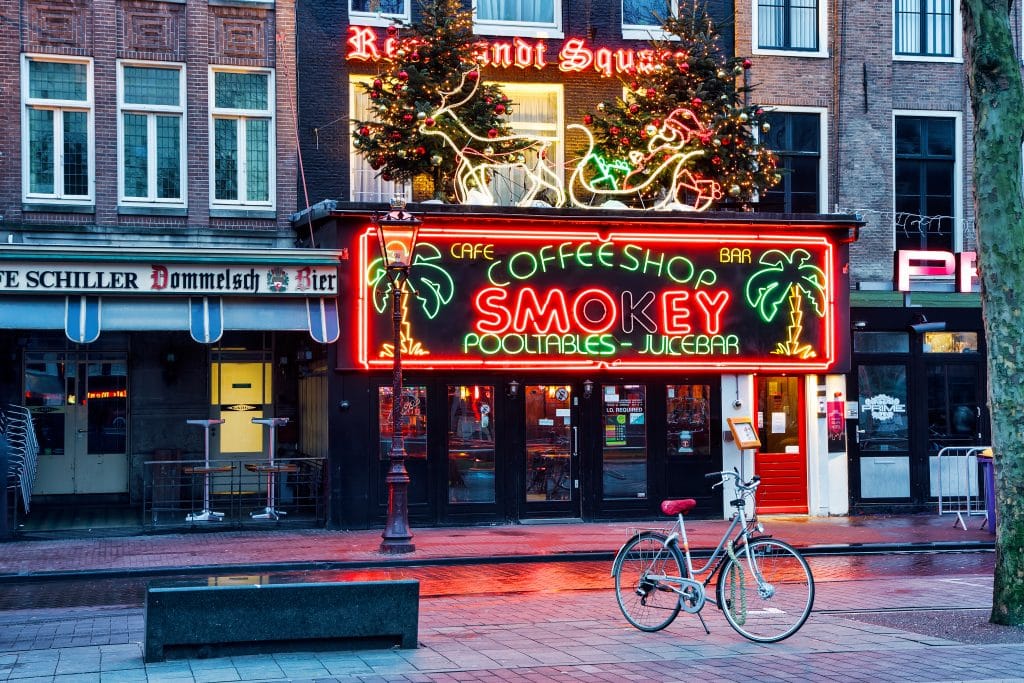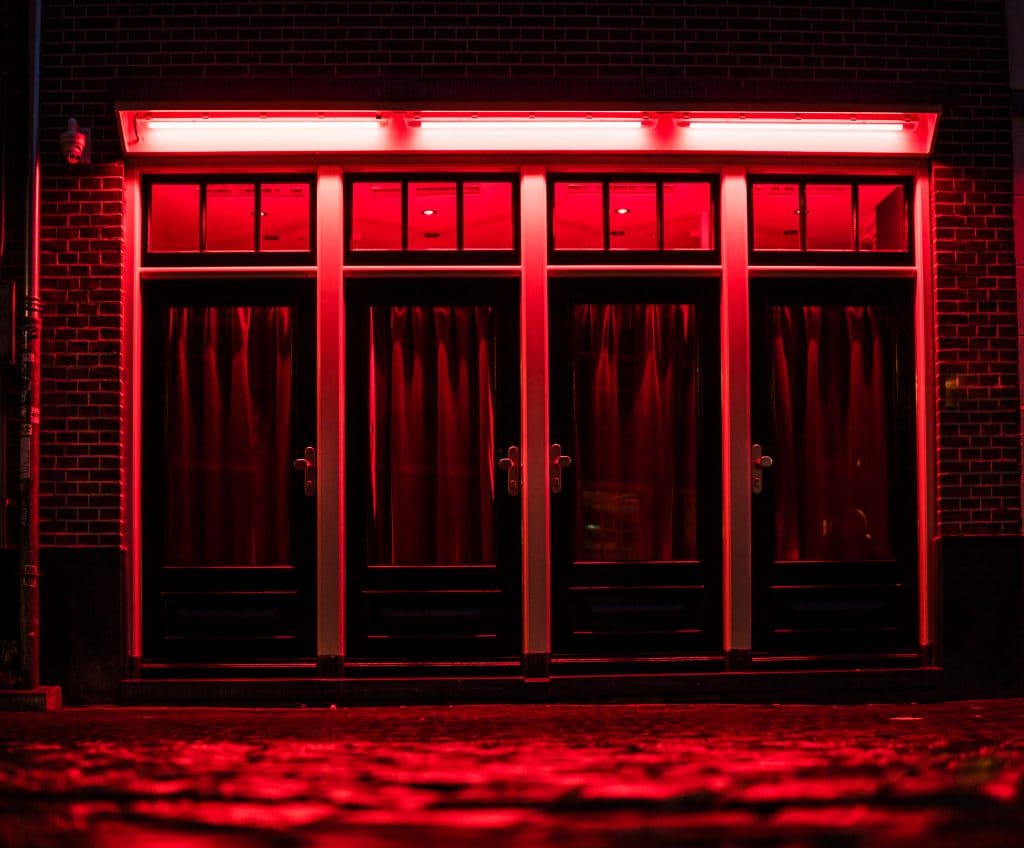Amsterdam, the capital of Holland, is famous around the world for its liberal and progressive attitude. You can buy cannabis from a variety of coffee shops, you can purchase magic truffles from smartshops and sex work is respected as a profession in the red-light district. However, this reputation has been under scrutiny from the Dutch establishment in recent years, with tourists coming to the beautiful city for all of the wrong reasons.
With many threats and potentials over the last few months, it seems something concrete is actually going to be done. Amsterdam has decided to ban smoking cannabis on the red-light district streets. Is this just an anomaly, or are many more clampdowns soon to follow? Let’s find out.
Amsterdam: the Liberal City
Amsterdam is a city known for its unique culture and progressive attitudes towards social issues. The city’s liberal mindset is a defining characteristic that sets it apart from other places in the world. From its liberal drug policies to its acceptance of the LGBTQ+ community, Amsterdam is a place where people can feel free to be themselves.
Drugs

One of the most famous aspects of Amsterdam’s liberal attitude is its policy towards drugs. While drugs are illegal in the Netherlands, the government has taken a lenient approach to soft drugs like cannabis. This has led to the birth of “coffee shops” throughout the city, where customers can purchase and consume cannabis. There are over 160 of these establishments in the capital, and together they add around 400 million euros to the nation’s wealth every year.
The policy has been in place for decades and has been largely successful in reducing drug-related crime and improving public health. Many visitors come to Amsterdam specifically to experience the city’s cannabis culture. In fact, in 2019, the capital received around 20 million tourists. Smartshops also sell other sorts of substances, particularly magic truffles. These contain psilocybin and are essentially a legal, embryonic version of magic mushrooms. Those in Amsterdam are free to purchase these products, head to Vondelpark and trip out.
Acceptance
Another aspect of Amsterdam’s liberal attitude is its acceptance. One case of this is in regards to the LGBTQ+ community. The city has a long history of tolerance and inclusivity, and it was one of the first places in the world to legalize same-sex marriage. The annual Amsterdam Gay Pride celebration is one of the largest and most vibrant Pride events in the world, drawing visitors from all over to celebrate diversity and acceptance. In addition to these well-known policies, Amsterdam is also known for its progressive attitudes towards issues like sex work. Prostitution is legal in the Netherlands, and sex workers are unionized and protected under the law. The red-light district in De Wallen – one of the oldest parts of Amsterdam – is a section of the city where sex workers can do their job safely.
The Problem
Whilst Amsterdam is known globally as this beacon of acceptance, it also has another side to it. Tourists from all over the world come to this city to take advantage – to utilize only the hedonistic pleasures. You’ll only have to walk the streets for a few minutes before you see a couple of young Brits falling over themselves, throwing a whitey, after smoking too much weed. It’s a common sight. The incorrect assumption is that Dutch locals smoke cannabis constantly due to the fact that it is accepted, but as is often the case, the legality of it normalizes it and thus makes it less common.
Or, for those that enjoy recreational substances, they do so respectfully and privately without causing a commotion. Amsterdam’s liberal attitude is not without its critics. Some argue that the city’s policies towards drugs and sex work contribute to social problems like addiction and exploitation. However, supporters of Amsterdam’s approach argue that it allows for greater personal freedom and reduces harm by regulating these industries rather than driving them underground. But the issue lies in tourism, not the policies themselves.
Red-Light District
The red-light district, in essence, is an incredible idea. A place where sex workers can exist, work and be protected. It is also a place for those who desire sex, to come and not feel judged either. Whatever you think about the world of prostitution, in a world where it exists, the red-light district is probably the most ideal and safe solution. However, this is not how it always runs. Amsterdam is now having to tackle the fact that much of their tourism is based around exploiting sex and drugs. The mayor of the city, Femke Halsema, has announced the idea of moving the red-light district somewhere else. Dutch news quotes her saying:

“Sex work belongs to Amsterdam and it will never go away… But the situation in the inner city is unsustainable. Livability has been under pressure for years for residents due to the stream of tourists who regularly misbehave and cause nuisance… By setting up an erotic center, we will lessen the pressure on De Wallen and at the same time create an extraordinary place where sex workers can work safely, legally and undisturbed”
The issue lies in how the red-light district ends up working. Obviously sex workers desire pay, like any other profession. However, many tourists stroll around the red-light district, gaping at the workers, acting abominably and never actually paying for sex. Beyond even the disrespect, the workers aren’t even receiving any financial gain a lot of the time. This is why Halsema wants to move the location, creating an exotic center, where the new spot would hopefully encourage visitors who want to pay for the services. However, as of yet, this idea has not been given the green-light.
Amsterdam Cannabis Ban
This isn’t the first time the mayor has had an idea that hasn’t come to fruition. Over the last few years, the idea of banning tourists from coffeeshops has also been floated. Whilst these ideas may not have materialized, what it shows is that those who care and live in Amsterdam want a change in how tourists are existing there. The issue, of course, is how much money tourism brings in. Nonetheless, after much uncertainty, there seems to be some concrete change right around the corner. The Guardian announces that Amsterdam is to: “outlaw cannabis-smoking in the red-light district streets”. It reads:
“Smoking cannabis on the street in Amsterdam’s red light district will soon be illegal, the city council has announced, as part of a range of bylaws designed to deter tourist excesses and make life more bearable for despairing local people.”
Thank you for stopping in. Head over to the Cannadelics Weekly Newsletter for direct updates; and get access to awesome deals on cannabis buds, vapes, edibles, smoking devices and equipment, cannabinoid compounds, and some psychedelic products! Go get high responsibly!
This cannabis ban will not only be within the red-light district, there will also be a ban of any weed smoking in the entirety of the inner city of Amsterdam starting mid-May. Other changes are also included. Sex workers will now have to shut at 3am, rather than 6. Restaurants will also be forced to close earlier at 2am, rather than 2 on weekdays. On weekends this will be 3am instead of 4. In regards to drinking, shops within the inner city will have to remove alcohol from their windows anytime that it’s illegal for them to sell it (which is now anytime after 4pm, Thursday-Sunday). The city where anything is possible – has now begun closing its doors.
The Positives
Whilst some may look upon this news with disappointment, the cannabis ban truly a necessary decision and – in many ways – a positive one for Amsterdam. Ever heard the phrase: ‘you can’t have your cake and eat it’. For too long, tourists have taken advantage of Amsterdam’s uniqueness and turned it sour. Openness, freedom and acceptance should not mean irresponsibly taking recreational drugs, making too much noise, disrespecting locals and using the city as a theme park. Like Icarus, as a society we have yet again flown too close to the sun. We have turned something beautiful into something ugly.
For locals in Amsterdam, the inner city was becoming practically unlivable. Something had to change. But this change isn’t a negative one. For those tourists who still love the city for its immense and diverse attractions – the beautiful canals, the museums, the cafes, the bars – they will have no problems. The city is open and always will be for those who truly love its identity. But for those weekenders who came to Amsterdam for cheap and legal thrills – to cause havoc and leave without cleaning up after themselves – they will be deterred. Is that a bad thing? Probably not.
Conclusion
Ultimately, Amsterdam’s liberal attitude is a defining feature of the city’s culture and identity. Its policies have made it a unique and fascinating place to visit, and they continue to draw people from all over the world who are interested in experiencing a different way of life. However, this tourism has caused debates over the years and has turned from curiosity to exploitation. It is no surprise that the mayor of Amsterdam has enforced a cannabis ban in the red-light district. Until tourists begin treating the city with the respect it deserves, these sorts of law changes will continue to happen.
Thanks for making your way over! We appreciate you stopping in at Cannadelics.com; where we work to bring you the best in independent news coverage for the cannabis and psychedelics spaces. Visit us regularly for daily news, and sign up to the Cannadelics Weekly Newsletter, so you’re always on top of what’s going on.
The post Amsterdam: Ban on Cannabis Smoking in Red-Light District? appeared first on Cannadelics.
Via https://cannadelics.com/2023/03/15/amsterdam-cannabis-smoking-ban/
source https://rosalinaklerkx.weebly.com/blog/amsterdam-ban-on-cannabis-smoking-in-red-light-district
No comments:
Post a Comment